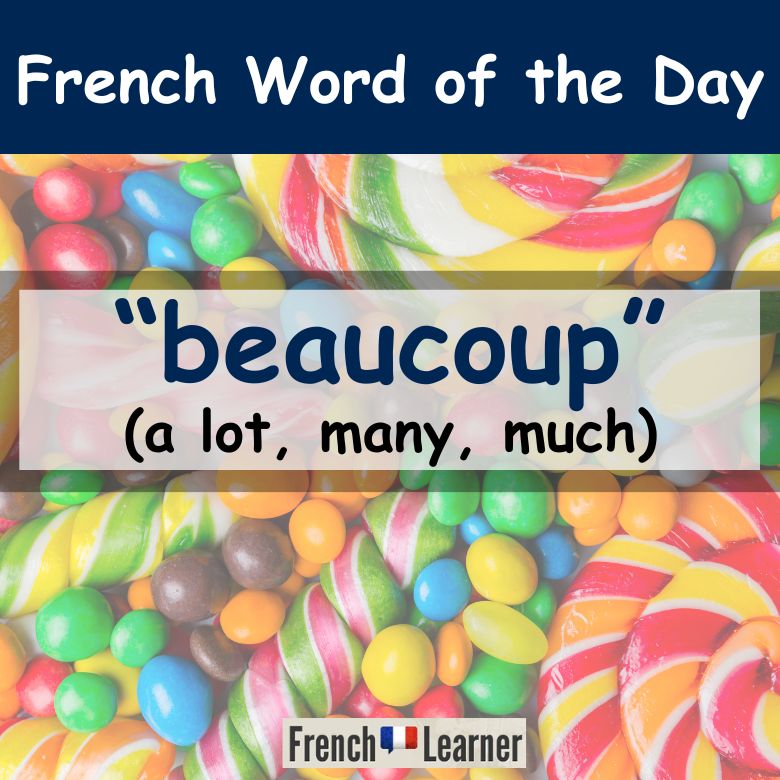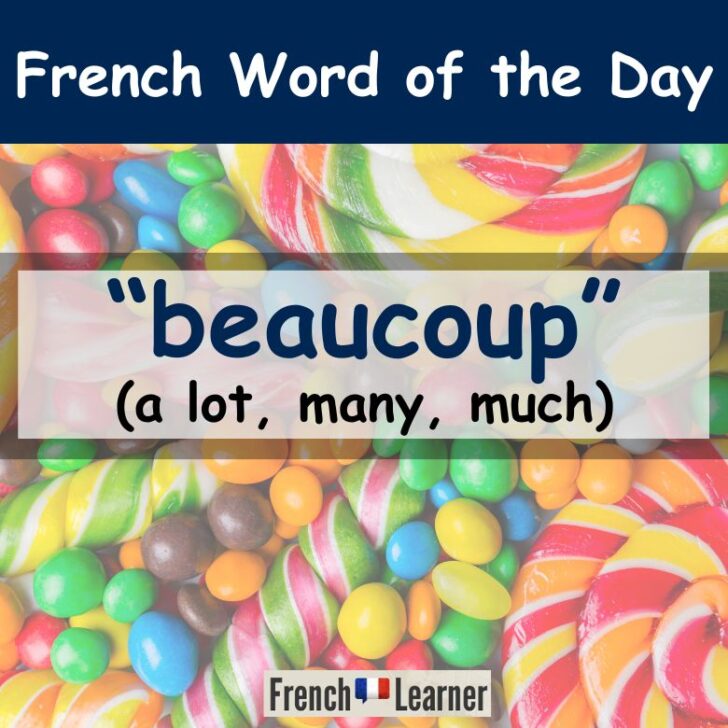Today’s French Word of the Day is beaucoup (Meaning: a lot, many, much). While beaucoup might appear as a very simplistic word at first glance, it’s placement in sentences can be a bit tricky. Keep reading and by the end of this post you’ll have very clear idea of how to use beaucoup in spoken French.
beaucoup
a lot / much

Breakdown of the word beaucoup
The word beaucoup combines two words: beau, meaning “fine” or “great” and coup, which translates to “hit” or “strike”.
Example sentences with beaucoup
Here are two basic sentences. In French, beaucoup comes between the verb and the object, where as “a lot” and “very much” come at the end of the English sentences.
J’aime beaucoup cette chanson.
I like this song a lot.
The following sentence is in the negation. While ne…pas wraps around the verb, beaucoup still precedes the object.
Je n’aime pas beaucoup cet auteur.
I don’t like this author very much.
In the passé composé, a commonly used French past tense, beaucoup comes between the auxiliary verb and the past participle.
J’ai beaucoup apprecié le film.
I like the movie a lot.
In French, use beaucoup de + noun to express “a lot of”. Note, you can never say beaucoup des. It’s always beaucoup de. Hence, for the following sentence beaucoup des amis would be wrong.
Nous avons beaucoup d’amis en France.
We have a lot of friends in France.
In French, plein de + noun is synonymous with beaucoup de. Here’s an example.
J’ai plein de copains à Paris.
I have lots of friends in Paris.
Here’s another example sentence using beaucoup de + noun.
Désolé, je n’ai pas beaucoup de temps aujourd’hui.
Sorry, I don’t have much time today.
The expression merci beaucoup means “thank you very much”. Here are two more example sentences.
Merci beaucoup ! C’est très gentil de votre part.
Thank you very much! That’s very nice of you.
Merci beaucoup pour l’invitation !
Thank you very much for the invitation!
Conclusion
Et voilà ! You now know how to use use beaucoup in French. Now check out these two related lessons: assez de (enough) and trop de (too much, too many).


